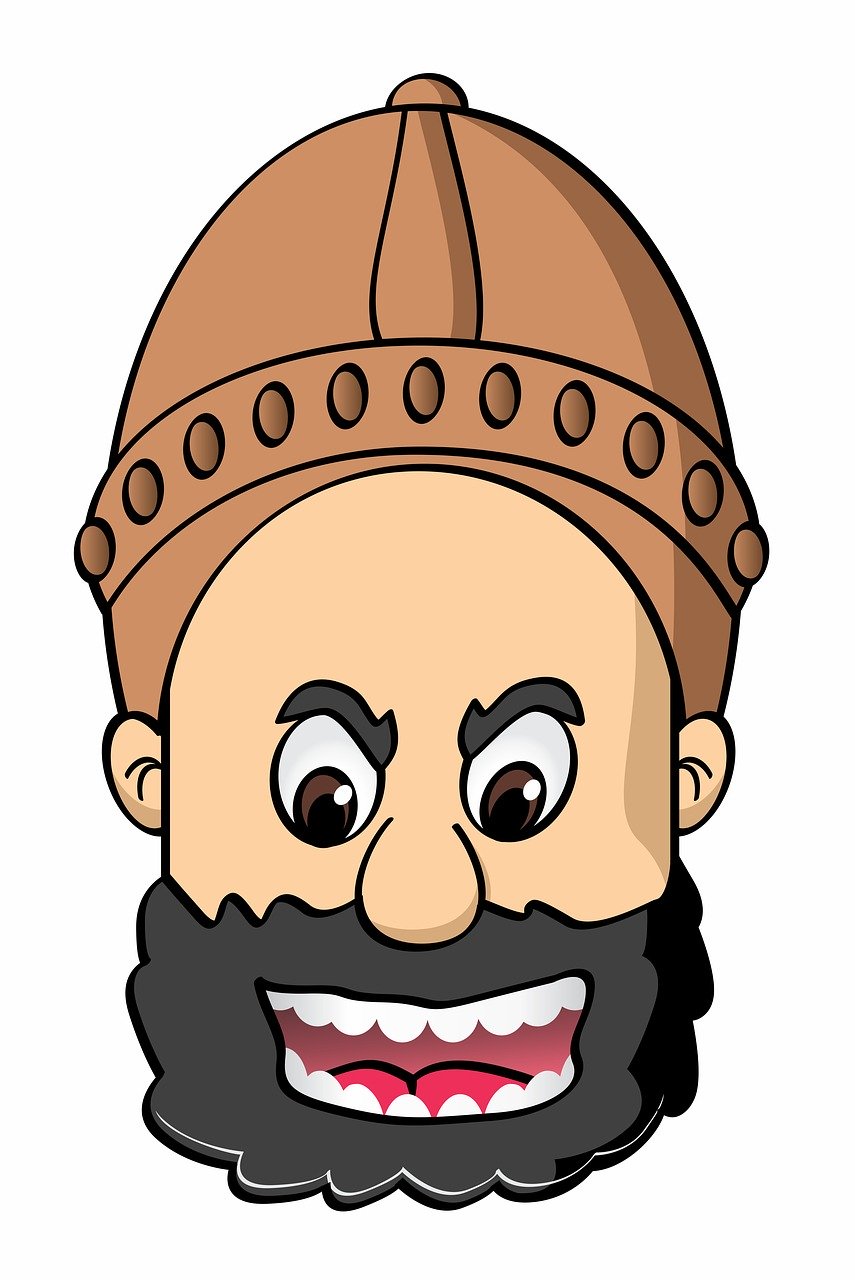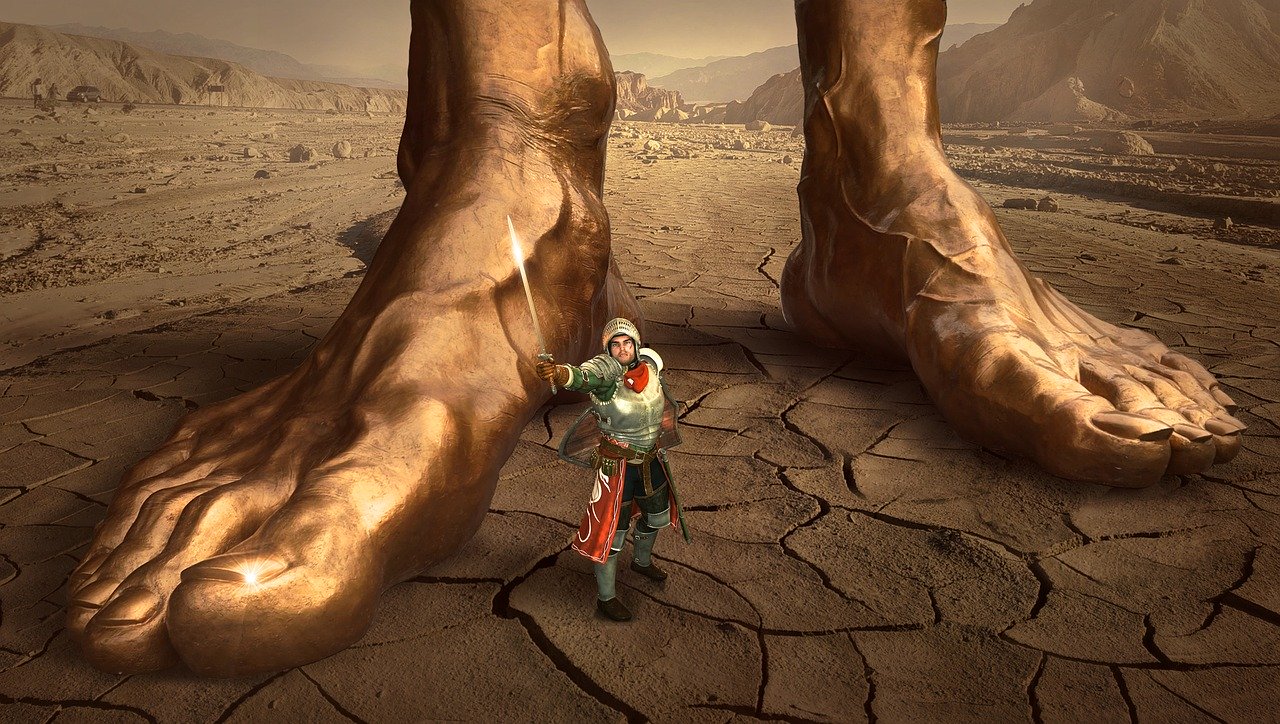We Need Giants in Our Life – Part Two

In our last article about the necessity for giants, we saw how the children of Israel found themselves at an impasse concerning the Philistine nation. Israel did not even dare to attempt to conquer them, due to a key representative put in place by the Philistine army—one massive giant. He was quite a formidable figure: nearly ten feet tall, likely weighing hundreds of pounds, along with his colossal armor, sword, and spear. He was, therefore, quite an intimidating sight to behold. This jeering menace kept the Israelites in constant fear and distress every time they tried to go out against their enemy.
But one young shepherd named David changed this whole situation, after he heard the threats and mockery directed toward his brothers and the God that he served. He had all already fought and eliminated many smaller ‘giants’ during his time spent guarding his father’s sheep. He therefore regarded this monstrosity of the Philistines as nothing greater than the sum total of all his previous conquests. and, through his trust in God’s faithfulness, he felt ready to take on this pride of the enemy.
David tried to use all that man had to offer him, but in the end, he was unable to. Why? Because he had not proved or tested them. In other words, he was familiar and comfortable with the means that God had provided for him in the past.
Now, even though David had already made known to Saul, the king of Israel, that he had overcome the lion and the bear with his own hands and might, still “Saul armed David with his armour, and he put an helmet of brass upon his head; also he armed him with a coat of mail. And David girded his sword upon his armour, and he assayed to go; for he had not proved it. And David said unto Saul, I cannot go with these; for I have not proved them. And David put them off him”(1 Samuel 17:38,39). David tried to use all that man had to offer him, but in the end, he was unable to. Why? Because he had not proved or tested them. In other words, he was familiar and comfortable with the means that God had provided for him in the past. He politely took the protections of man, but then “put them off him.”
Instead, “he took his staff in his hand, and chose him five smooth stones out of the brook, and put them in a shepherd’s bag which he had, even in a scrip [small pouch]; and his sling was in his hand: and he drew near to the Philistine” (1 Samuel 17:40). At this point, David could have mustered up a portion, if not all, of the army of Israel, and ordered them to come with him to bring down the giant. But he had no need to, for he was confident that God was with Him. He also knew that the wild beasts that wanted to devour his sheep back in the wilderness were destroyed without the assistance of his brothers, neighbors or anyone else. During that period, it was just God and him.
“And when the Philistine looked about, and saw David, he disdained [rejected] him: for he was but a youth, and ruddy, and of a fair countenance. And the Philistine said unto David, Am I a dog, that thou comest to me with staves [staffs]? And the Philistine cursed David by his gods. And the Philistine said to David, Come to me, and I will give thy flesh unto the fowls of the air, and to the beasts of the field”(1 Samuel 17:42-44). This was the final moment for David. Would he flee, or fight? Was he going to give up, and then make it known to God that He would have to make His tests either smaller or easier for him in the future?
And when God brings enormous giants into our life, it really should not surprise us. He knows to what degree we are capable of conquering. It also demonstrates that we have passed the smaller tests of faith and courage that we encountered in the past.
David had come too far at this point to retreat. Again, he knew that he had the Lord with him. He was the same One who delivered the children of Israel from the Egyptian rulers and taskmasters, the same One who parted the Red Sea so they could pass through unhindered, who fed them in the wilderness with the food of angels, who gave them the protection of a cloud by day and fire by night, who poured out water from a rock to quench their thirst, who brought them through the Jordan river without a single sandal wet, and the list goes on.
“Then said David to the Philistine, Thou comest to me with a sword, and with a spear, and with a shield: but I come to thee in the name of the Lord of hosts, the God of the armies of Israel, whom thou hast defied. This day will the Lord deliver thee into mine hand; and I will smite thee, and take thine head from thee; and I will give the carcases of the host of the Philistines this day unto the fowls of the air, and to the wild beasts of the earth; that all the earth may know that there is a God in Israel” (1 Samuel 17:45,46). What had actually happened was that this mighty individual had gone too far with God and, like David, he could not retreat either. It was not so much David that Goliath provoked, nor the Israelites, but rather God Himself!
David never said that he was going to bring victory for the people through all of his own wonderful efforts and actions. He knew that he was only a tool for his Heavenly Father to use to bring glory to Himself.
And when God brings enormous giants into our life, it really should not surprise us. He knows to what degree we are capable of conquering. It also demonstrates that we have passed the smaller tests of faith and courage that we encountered in the past. Notice also the way David refers to God in the previous passage. It is not as “God Almighty,” but as the “Lord,” or “Jehovah of hosts.” This implies intimacy and closeness, like a father’s relationship to his child. In the past, the Israelites only knew God as “the Almighty”, suggesting a distant and more impersonal connection. It is only when we walk alongside God, understanding Him as our Heavenly Father, that our confidence in Him develops to the point where we come to know that the impossible can become possible.
David honored God in all that He was about to accomplish. He declared that “..all this assembly shall know that the Lord saveth not with sword and spear: for the battle is the Lord’s, and He will give you into our hands”(1 Samuel 17:47). David never said that he was going to bring victory for the people through all of his own wonderful efforts and actions. He knew that he was only a tool for his Heavenly Father to use to bring glory to Himself.

No matter where we are in our walk with God, we will also face a particular kind of Goliath at some point. It is necessary for us to conquer obstacles like him in order to move to another level with God. Therefore, He will make sure that we are trained and prepared for these confrontations, as we continue to yield to Him. In return, we must never take the credit for ourselves; doing so only hastens our defeat. The Lord wants our humble devotion to Him alone, just like a child to his parents. David took only a simple sling and a few stones. Even though a sword, a shield, and full armor were readily available to him, he knew that he already had the ultimate protection: God Himself. When the giants come in our lives, we should not turn to man, but to God for our defense, wisdom, and strength, knowing that “God is our refuge and strength, a very present help in trouble”(Psalm 46:1).
In the final part of this series, we will look at the outcome of this impossible battle and how we can continue to overcome the Goliaths and the enemies that stand behind us and God as well.
[Additional image credits: Featured image (when applicable) LoggaWiggler on Pixabay; Opening image by Claudio on Pixabay]




